Introduction
Parents frequently inquire, ‘Is a baby walker safe for infants?” Baby walkers seem like fun tools that help infants move around before they start walking. However, there is growing concern about their safety. In this blog, we’ll explore the safety of baby walkers for infants, uncover their benefits, and examine expert recommendations.
#1 Understanding Baby Walkers
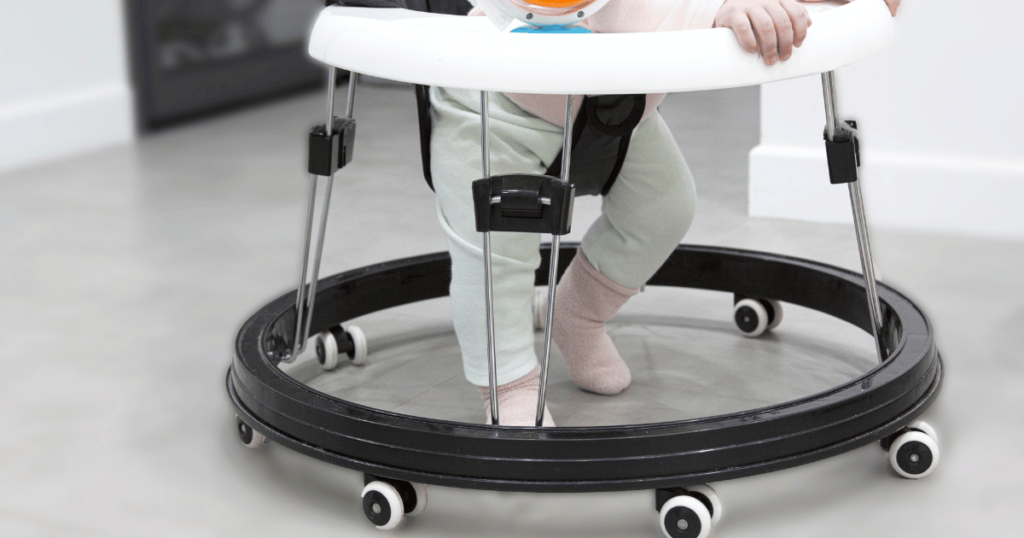
A baby walker is a device that helps infants move while they are still learning to walk. It usually has a seat with leg holes and wheels that allow babies to scoot around. Walkers have been popular for years, but concerns about safety have made many parents think twice.
These devices seem like they give babies more mobility, but they come with risks. Some studies suggest that baby walkers can delay walking development rather than promote it.
What is the purpose of a baby walker?
The primary purpose of a baby walker is to assist infants in mobility. It allows them to explore their surroundings while providing support as they learn to move. Walkers can also engage babies with toys, promoting sensory development and encouraging movement before they learn to walk independently.
#2 Risks of Baby Walkers
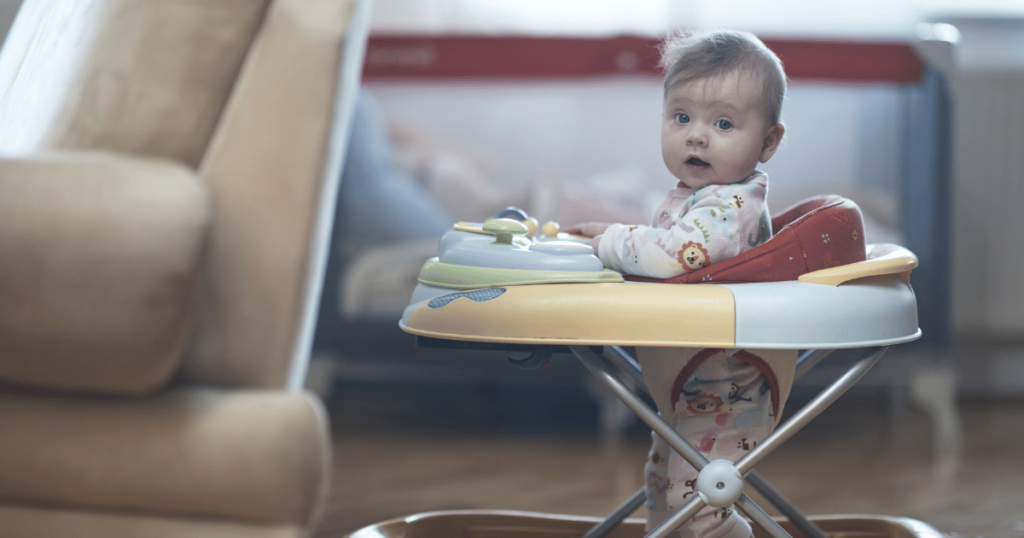
Many parents are unaware of the risks associated with baby walkers. The American Academy of Pediatrics (AAP) has advised against their use due to potential hazards. One of the biggest risks is falling down stairs, which can result in serious injuries.
Walkers also allow babies to reach dangerous objects, such as hot stoves or sharp objects. Since they move faster than a crawling baby, parents may have less time to react in dangerous situations.
Why are baby walkers considered dangerous?
Baby walkers are considered dangerous for several reasons. They can allow infants to reach hazardous areas quickly. This increases the risk of falls down stairs or collisions with furniture. Additionally, walkers may delay walking skills by encouraging improper movement patterns. Safety experts often recommend avoiding their use.
#3 Do Walkers Delay Walking
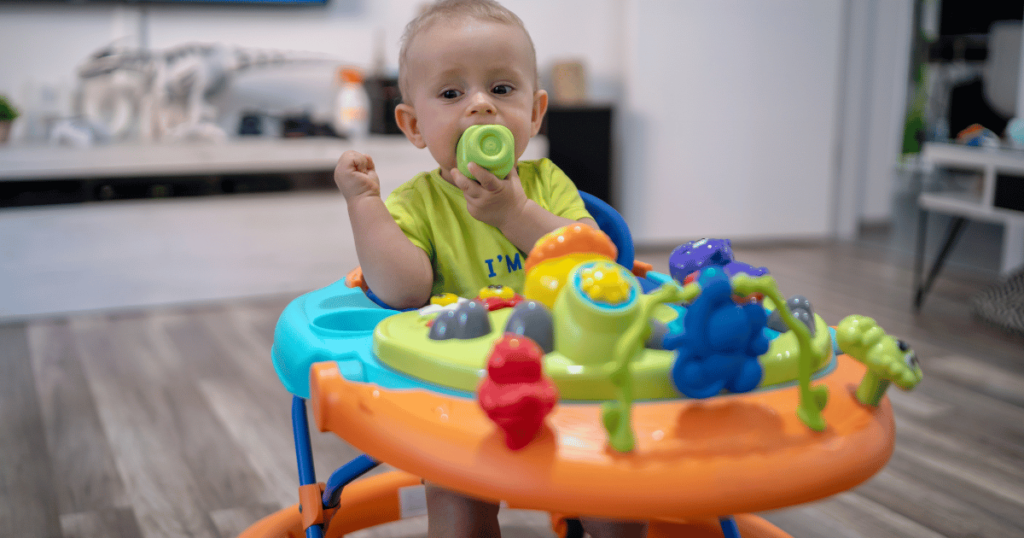
Contrary to popular belief, baby walkers don’t help infants learn to walk faster. In fact, walkers may delay walking. Babies in walkers rely on the wheels to move, and they may not develop the muscle strength needed for walking independently.
By spending time in a walker, babies miss out on important floor play, which strengthens their legs and helps them learn to balance.
Do baby walkers assist in walking or delay the process?
Baby walkers may delay the walking process rather than assist it. While they allow movement, walkers can prevent infants from practicing essential skills like crawling and standing. This restricted movement might hinder natural development. Experts suggest encouraging independent movement for healthier walking progression in babies.
#4 Alternatives to Baby Walkers
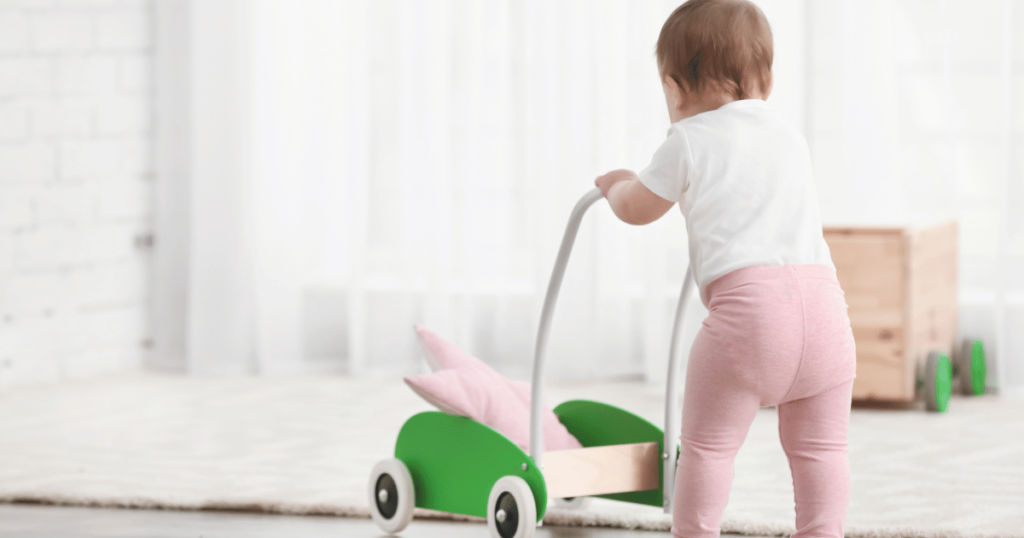
If you’re concerned about baby walker safety but still want to encourage mobility, there are safer alternatives. Stationary activity centers enable babies to stand and play while minimizing the risk of moving into unsafe areas. These devices help infants practice standing while keeping them safe.
Push toys are also a great alternative. They allow babies to move while practicing balance, without the risks associated with walkers.
What are some safer options to consider instead of baby walkers?
Safer alternatives to baby walkers include stationary activity centers and playpens. These options allow babies to explore without the risk of rolling or falling. Additionally, encouraging tummy time and supervised floor play helps develop strength and coordination. These activities support natural movement and promote healthy motor skill development.
#5 Safety Tips if You Choose a Walker
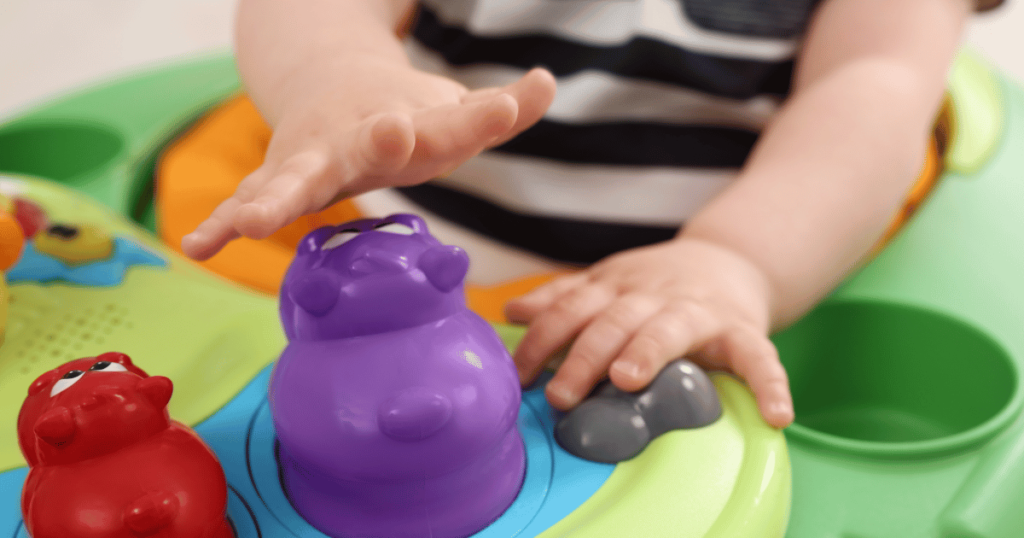
If you decide to use a walker, there are safety steps you can take to reduce risks. Always supervise your child closely while they’re in a walker. Make sure the area is free from stairs, sharp objects, and hot surfaces.
Use the walker in rooms with flat, even surfaces. Never let your baby use a walker near stairs, even if you have baby gates in place.
What precautions should be taken if using a baby walker?
When using a baby walker, always supervise your child. Ensure the walker has a wide base for stability and secure brakes. Keep the area free of hazards, like stairs or sharp furniture. Limit walker use to flat surfaces to prevent accidents and encourage safe exploration for your baby.
#6 Age Recommendations and Weight Limits

Many parents wonder at what age it’s safe to use a baby walker. Typically, walkers are designed for babies between 4 and 16 months old. However, experts recommend waiting until your baby can sit up independently before considering any walking aid.
Make sure you follow the weight limits specified by the manufacturer. Exceeding the weight or height limit can make the walker unstable and increase the risk of accidents.
What age is appropriate for baby walker use?
The suitable age for using a baby walker is between 4 and 16 months. It’s important that the baby can sit up and support their weight before using one. Always ensure safety and supervision during use to promote a secure environment for exploration.
#7 Why Some Parents Still Use Baby Walkers
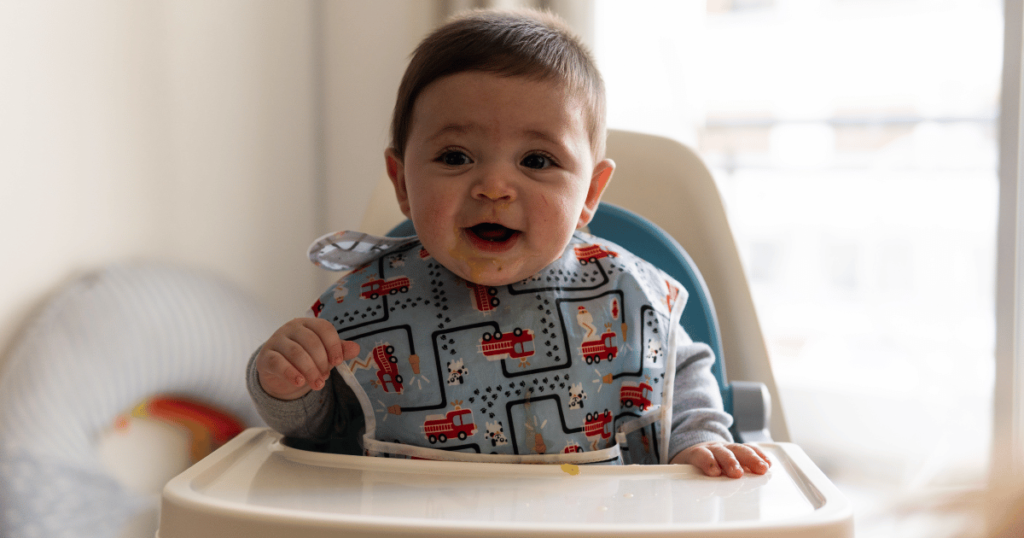
Despite safety concerns, some parents still choose to use baby walkers. They enjoy the convenience and the freedom it gives their baby to explore. Walkers can keep babies entertained while giving parents a moment to relax.
However, it’s important to balance convenience with safety. Always be aware of the risks and use walkers responsibly.
Common Concerns About Baby Walkers
Which is the best baby walker? What are the benefits of baby walkers?
The best baby walker is one that ensures safety and comfort for your baby. Popular choices include the Joovy Spoon Walker and VTech Sit-to-Stand Learning Walker. These models offer sturdy designs and engaging features. The benefits of baby walkers include allowing babies to explore their surroundings and practice standing. Walkers can also entertain babies with toys and activities while encouraging some leg movement.
Are baby walkers safe for development?
Baby walkers are not always safe for development. They may cause delays in walking as they support unnatural movements. Walkers can also weaken the muscles needed for crawling and walking. Many pediatricians advise against them, as they increase the risk of accidents like falls and collisions with objects.
Are walkers good for the baby?
Walkers can be fun for babies but aren’t necessary for development. In fact, they can hinder a baby’s ability to walk on their own by making them rely on the walker for support. Instead, allowing babies to crawl and practice standing naturally helps strengthen their muscles.
Is a walker good for babies? My baby is 10 months old?
For a 10-month-old, a walker might seem useful, but it’s important to be cautious. Walkers can delay natural walking progress by allowing babies to move without balancing. Instead, consider stationary activity centers or supervised floor play to help your baby practice standing and walking.
What are the disadvantages of a baby walker?
Baby walkers can delay walking by encouraging unnatural posture and movement. They can also pose safety risks, leading to falls or access to dangerous areas. Prolonged use can affect muscle development, making it harder for babies to learn to walk independently.
How do baby walkers help babies learn to walk earlier?
Contrary to popular belief, baby walkers do not help babies walk sooner. Instead, they can delay natural walking by promoting improper posture. Babies learn to walk best when they practice standing and balancing on their own.
Is a baby walker recommended?
Most pediatricians do not recommend baby walkers due to the risks they pose. Walkers can delay motor skills and increase the chances of accidents. A safer alternative is a stationary activity center that promotes natural development without the risks of a walker.
Final Thoughts: Are Baby Walkers Safe for Infants
Baby walkers offer many benefits, from encouraging early mobility to strengthening leg muscles. They promote independence, engage babies with toys, and provide parents with a few minutes of hands-free time. However, it’s crucial to use them safely and in moderation.
A baby walker can be a valuable tool in your child’s early development, as long as you balance its use with plenty of floor time and active play. The key is to ensure that your child is always safe and supervised while enjoying the benefits a walker can provide.
Other References
- American Academy of Pediatrics (AAP)
- What to Expect – March of Dimes
- KidsHealth from Nemours
- American Dental Association (ADA)
- WebMD
- What to Expect
- BabyCenter
- Verywell Family
- The Spruce
- Healthy Children
More to Read
- How to bathe a newborn baby in 13 steps: The comprehensive guide
- Getting the temperature just Right: A guide to baby bath water
- Bath Time: How often should you wash your little one
- Baby Bathtubs: The Best 5 Ways to Store Baby Bathtubs in 2024
- 4 Steps to Choose a Collapsible Baby Bathtub in 2024
- The Best 5 Baby Bathtubs for Small Space in 2024
- The Best 5 Inflatable Baby Bathtubs In 2024

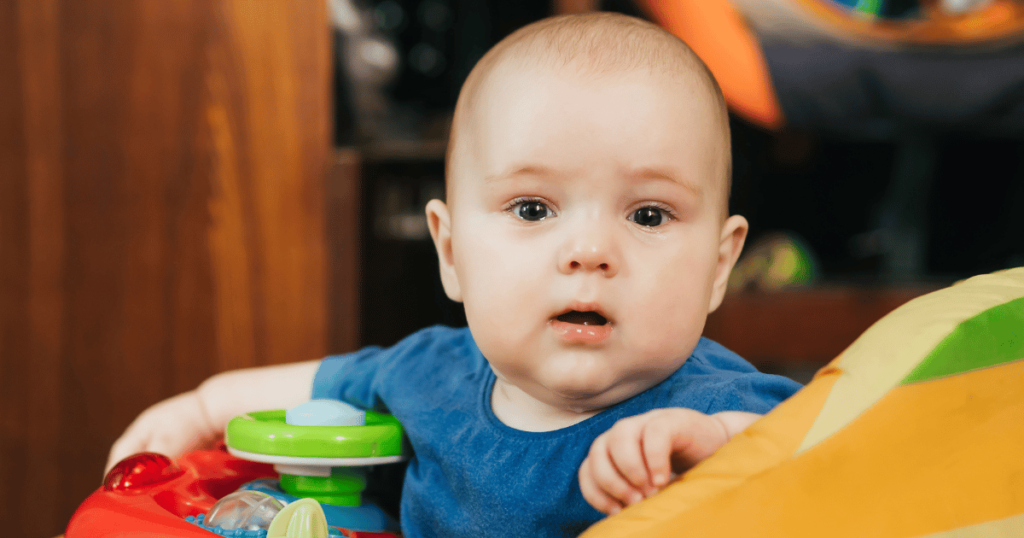
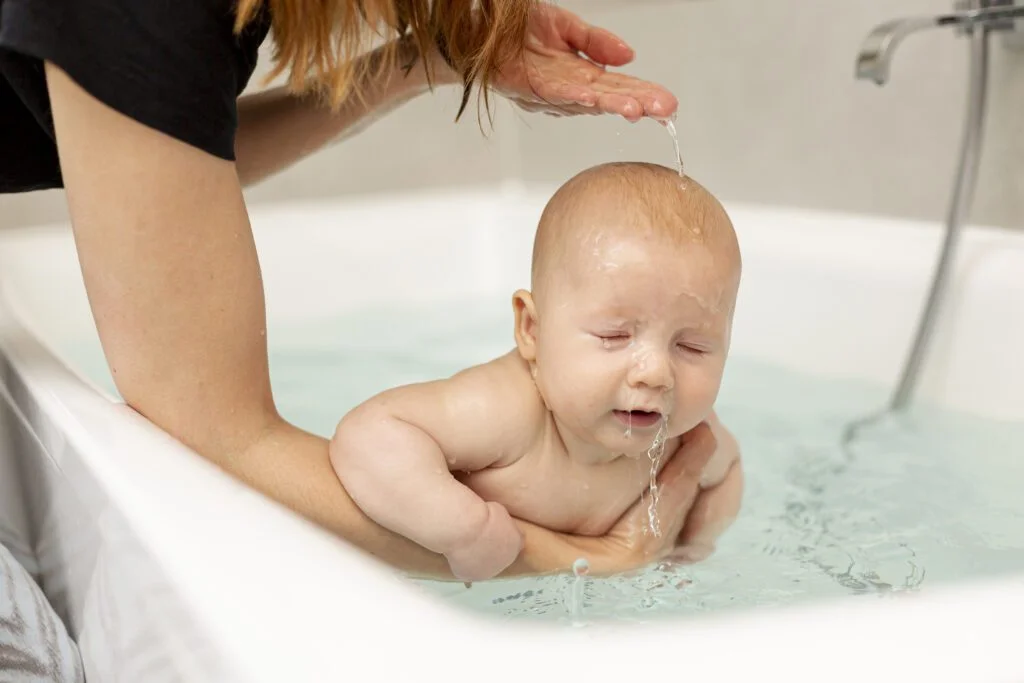

I am sure this post has touched all the internet users, its really really fastidious paragraph on building up new webpage.!